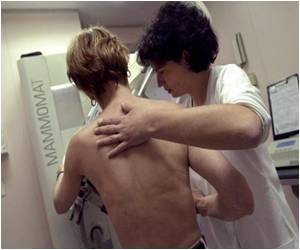The breast density assessments varied widely from one radiologist to another. Women should seek digital mammography that improves detection of breast cancers.

‘Dense breasts make it harder for radiologists to detect possible abnormalities on a mammogram, which could be a risk factor for breast cancer.’





“Part of the message is that the assessment of dense breasts is subjective,” said lead author Brian Sprague of the Office of Health Promotion Research at the University of Vermont in Burlington.Dense breasts are one factor for decision-making about breast cancer screening, but not the only factor, added Sprague.
For the study, researchers analyzed more than 200,000 mammograms performed on 145,000 women ages 40 to 89 between 2011 and 2013. Eighty-three radiologists from 30 radiology facilities evaluated the mammograms.
The radiologists rated each breast as ‘almost entirely fat,’ ‘scattered densities,’ ‘heterogeneously dense’ (some non-dense tissue but most of the tissue is dense) and ‘extremely dense.’
Heterogeneously dense and extremely dense are the two categories that qualify as “dense” based on state legislation.
Advertisement
Age at first period, age at the birth of first child, having a first-degree relative with breast cancer and a history of prior benign disease all influence breast cancer risk as well.
Advertisement
Most of the radiology centers use computer models to interpret breast density in mammograms which may allow a more objective rating. Women with dense breasts should seek digital mammography which improves detection of cancers.
Source-Medindia














